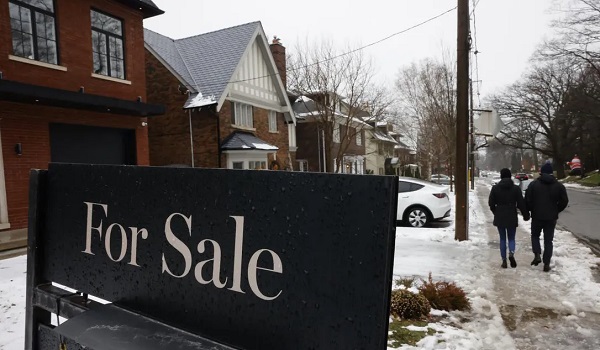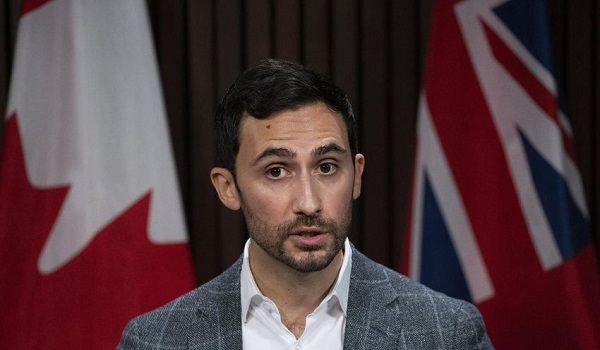Ontario provides home sellers the option to unveil bid details with other buyers
The blind bidding war has been a fixture of Canadian real estate for a generation, but even with new rules in Canada’s largest real estate market that will allow realtors to part the veil of secrecy, industry experts don’t believe an era of open auctions is upon us.
“The ability to disclose is a step in a positive direction. Do I think all of the sudden sellers are going to open up, no, I don’t think so,” said Cailey Heaps, broker of record for Royal LePage Real Estate Services Heaps Estrin Team.
On Dec. 1, the latest update to Ontario’s realtor legislation, the Trust in Real Estate Services Act (TRESA), came into force, allowing sellers for the first time to direct their agents to share details of buyer bids with other buyers.
Blind bidding is a hot topic when the market is soaring, and the practice was mentioned in the April, 2022, federal budget when the governing Liberals promised to create a “Home Buyers’ Bill of Rights” that would ban the practice nationwide. Almost two years later there’s no sign of a ban and Ontario’s new rules only open bidding voluntary.
“I think it’s actually going to be worse,” said John Pasalis, president and broker of record with Realosophy Realty Inc. “If this was a pure open offer system, where it is transparent, that’s completely different. That is not what this is. This is the Wild West. It’s worse for the buyer and probably better for the seller; the seller has more tools at their disposal to maximize sale price.”
There’s little public data on how often bidding wars happen. For example, the country’s largest association – the Toronto Regional Real Estate Board – doesn’t collect the information and doesn’t make bidding wars a searchable category for online brokerages. What can be tracked is how often properties sell “over asking,” which, while imprecise, does offer signs that a property was bid up.


According to Scott Ingram, sales representative with Century 21 Regal Realty Inc., the number of freehold houses in Toronto’s 416 area code that went above asking was 31 per cent of sales in the past six weeks, slightly below the eight-year median of 34.5 per cent (far well below the record of fall 2021 when it was 72 per cent of sales). The bidding appears less frothy as well; Mr. Ingram’s data suggest the difference between the asking price and the selling price is about 5 per cent right now. In very hot markets that gap has widened to more than 20 per cent. In the condo market, only one in seven sales is over asking in recent weeks, the lowest mark in the eight years of Mr. Ingram’s data.
New homebuyers have often chafed at the unfairness of the bidding war system as it was previously constituted, where sellers could host an offer night and receive multiple bids, but the only information allowed to be passed on to other bidders was the number of other offers. Blind bidding could extend into multiple rounds and buyers sometimes raised their bids even if they were already in the lead.
“At the end of the day people want more transparency – this is opening the door to that,” said Daniel Steinfeld, broker for On The Block Realty, one of the few brokerages in the province that already runs an open-bidding auction system for house purchases. Mr. Steinfeld has been operating for seven years, and he estimates auctions are still only about 5-10 per cent of his brokerage’s transactions. One thing he’s learned: auctions aren’t for everyone.
“If I would have taken every call about auctions, it would have been 80 per cent of our business,” he said. “The majority were having trouble selling their home, they looked at [auctions] like a magic pill. But if somebody’s been on the market and had no bites, the problem is deeper than an open auction.”
His company is preparing an unbranded version of its online auction site and hopes to offer it to other brokers as a platform to run their own open auctions.
“Our biggest message has been the consumer needs choice; we’ve never said auctions or open bidding is the only answer – or will fix affordability,” Mr. Steinfeld said. “This is just a good thing to offer.”
Reform of blind bidding was sometimes pitched as an affordability measure; though because of a lack of data collection around secret bids, it’s never been clear how much the practice might have increased prices. In its announcement of the new rules last week, Ontario’s Ministry of Public and Business Service Delivery eschewed any mention of affordability and said in a statement, “The Ontario government continues to promote approaches that encourage consumer choice in the real estate trade process.”
Industry veterans also warn that the new rules leave a lot up to the seller, and there will likely be as many ways to run an open or closed bidding war as there are realtors in the province.
“I don’t think it’s going to change the initial offer process: If I’m a seller, I’m going to be closed bid,” said Andre Kutyan, a broker at Harvey Kalles Real Estate Ltd. “In the second round, you might be able to say, ‘The top two are X and Y … my top two are over this amount of money.’ By the way, this was happening prior to TRESA.”
That’s a reality Ms. Heaps points to as well: Many top agents were already sharing some details to steer the bidding process – in violation of the rules – before TRESA made it legal. Oftentimes it wasn’t sharing explicit details, but rather suggestions about whether a bid could be improved with a different closing date or financing clause. “We’ve been able to have leading conversations,” she said.
The new rules don’t provide a road map to how an open offer day would differ from a closed one, and the different approaches realtors have used for purely closed bidding wars can already make the practice chaotic.
“I’m a guy that says, ‘I don’t need the government telling me what to do.’ But as far as multiple offers, I’d love it if there was a more defined process,” said David Fleming, broker with Bosley-Toronto Realty Group Inc.
This article was reported by The Globe and Mail













